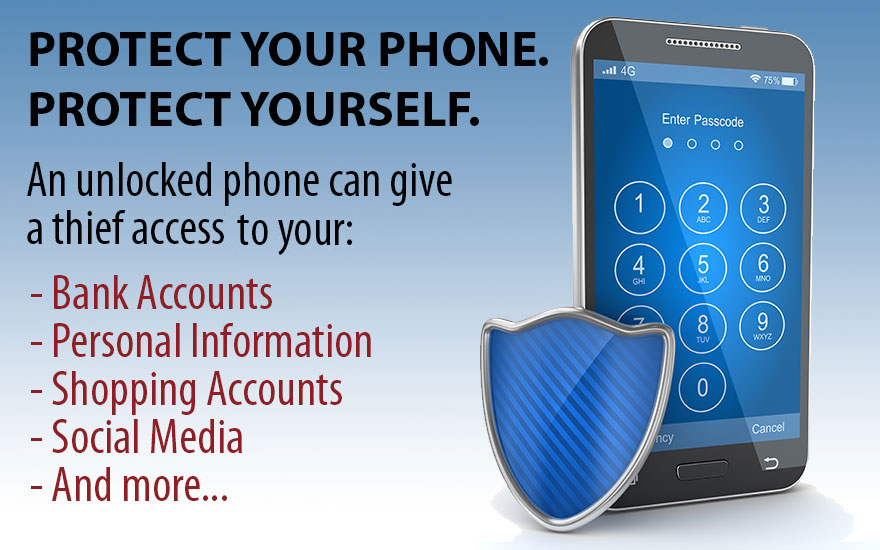
In 2022, scammers stole over $8.8 billion from regular people. Don’t become their next victim.
Phishing via calls and texts are more prevalent than ever. Watch for these four red flags:
- They ask you to open a link
- They use urgent or fear-inducing language
- They request personal info like PINs, passwords, Social Security numbers, or access codes delivered through email, text or voice
- They pressure you to log into or send money with payment apps
Phone Call Scams
Scammers sometimes try to cheat you out of your money by impersonating your bank over the phone. In some scams, they act friendly and helpful. In others, they’ll threaten or scare you. Scammers will often ask for your personal information or get you to send them money. Banks never will.
Watch out for a false sense of urgency
Scammers count on getting you to act before you think, usually by including a threat. Banks never will. A scammer might say “act now or your account will be closed,” or even “we’ve detected suspicious activity on your account” — don’t give into the pressure.
Never give sensitive information
Never share sensitive information like your bank password, PIN, or a one-time login code with someone who calls you unexpectedly — even if they say they’re from your bank. Banks may need to verify personal information if you call them, but never the other way around. Your bank will never ask for your PIN, password, or one-time login code in when calling you.
Don’t rely on caller ID
Scammers can make any number or name appear on your caller ID. Even if your phone shows it’s your bank calling, it could be anyone. Always be wary of incoming calls.
Hang up – even if it sounds legit
Whether it’s a scammer impersonating your bank or a real call, stay safe by ending unexpected calls and directly dialing your bank instead.
Text Message Scams
Phishing text messages attempt to trick you into sharing personal information like your password, PIN, or social security number to gain access to your bank account. As long as you don’t respond to these messages and delete them instead, your information is safe. All you need to do is spot the signs of a scam before you click or reply.
Slow down – think before you act
Acting too quickly when you receive phishing text messages can result in unintentionally giving scammers access to your bank account — and your money. Scammers want you to feel confused and rushed, which is always a red flag. Banks will never threaten you into responding, or use high-pressure tactics.
Don’t click links
Never click on a link sent via text message — especially if it asks you to sign into your bank account. Scammers often use this technique to steal your username and password. When in doubt, visit your bank’s website by typing the URL directly into your browser or login to your bank’s mobile app.
Never send personal information
Your bank will never ask for your PIN, password, or one-time login code in a text message. If you receive a text message asking for personal information, it’s a scam.
Delete the message
Don’t risk accidentally replying to or saving a fraudulent text message on your phone. If you are reporting the message, take a screenshot to share, then delete it.
The bottom line: be careful!
Always be diligent when dealing with your money and access to your accounts. Remember that it’s OK to question the motives of someone contacting you unexpectedly. And as always, never hesitate to contact your local American Federal office with any questions or if something seems suspicious.








